-
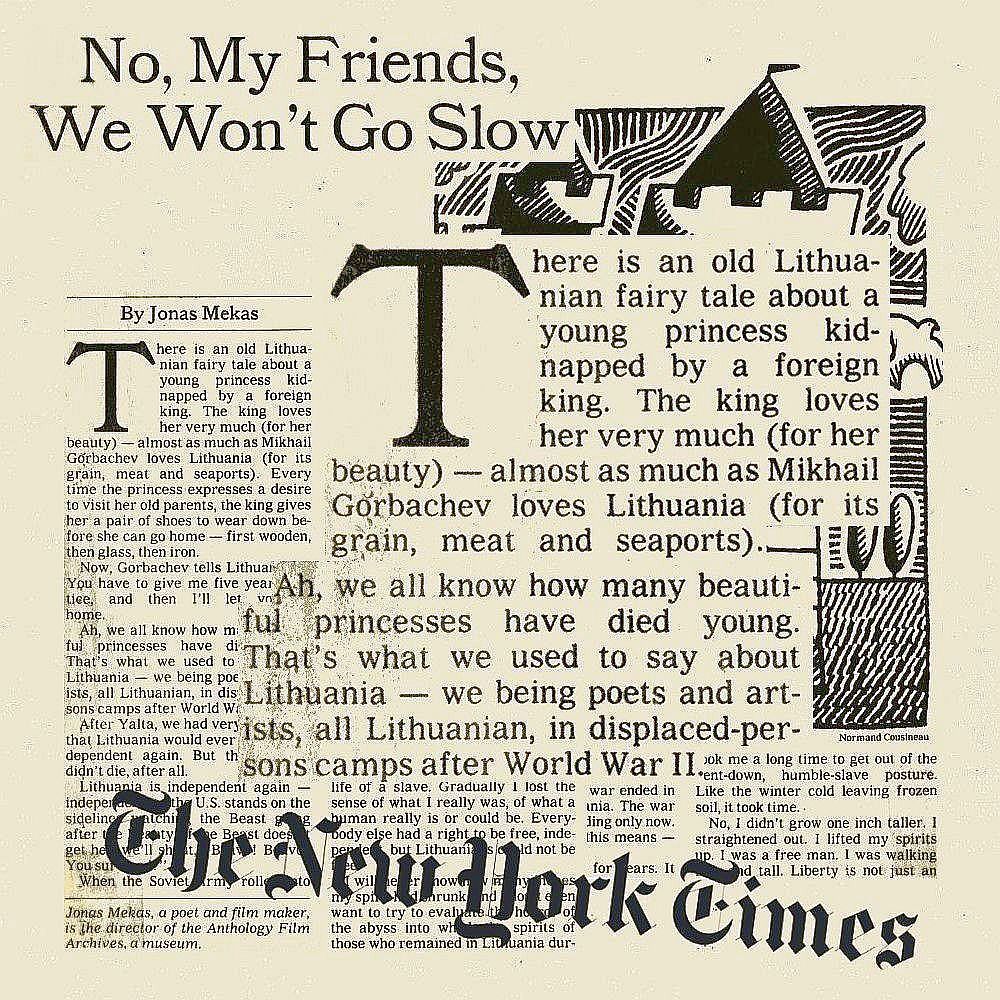
March 29, 1990
Jonas Mekas. “No, my friends, we won’t go slow”
There is an old Lithuanian fairy tale about a young princess kidnapped by a foreign king. The king loves her very much (for her beauty) – almost as much as Mikhail Gorbachev loves Lithuania (for its grain, meat and seaports).
Ah, we all know how many beautiful princesses have died young. That’s what we used to say about Lithuania – we being poets and artists, all Lithuanian, in displaced-persons camps after World War II.
-
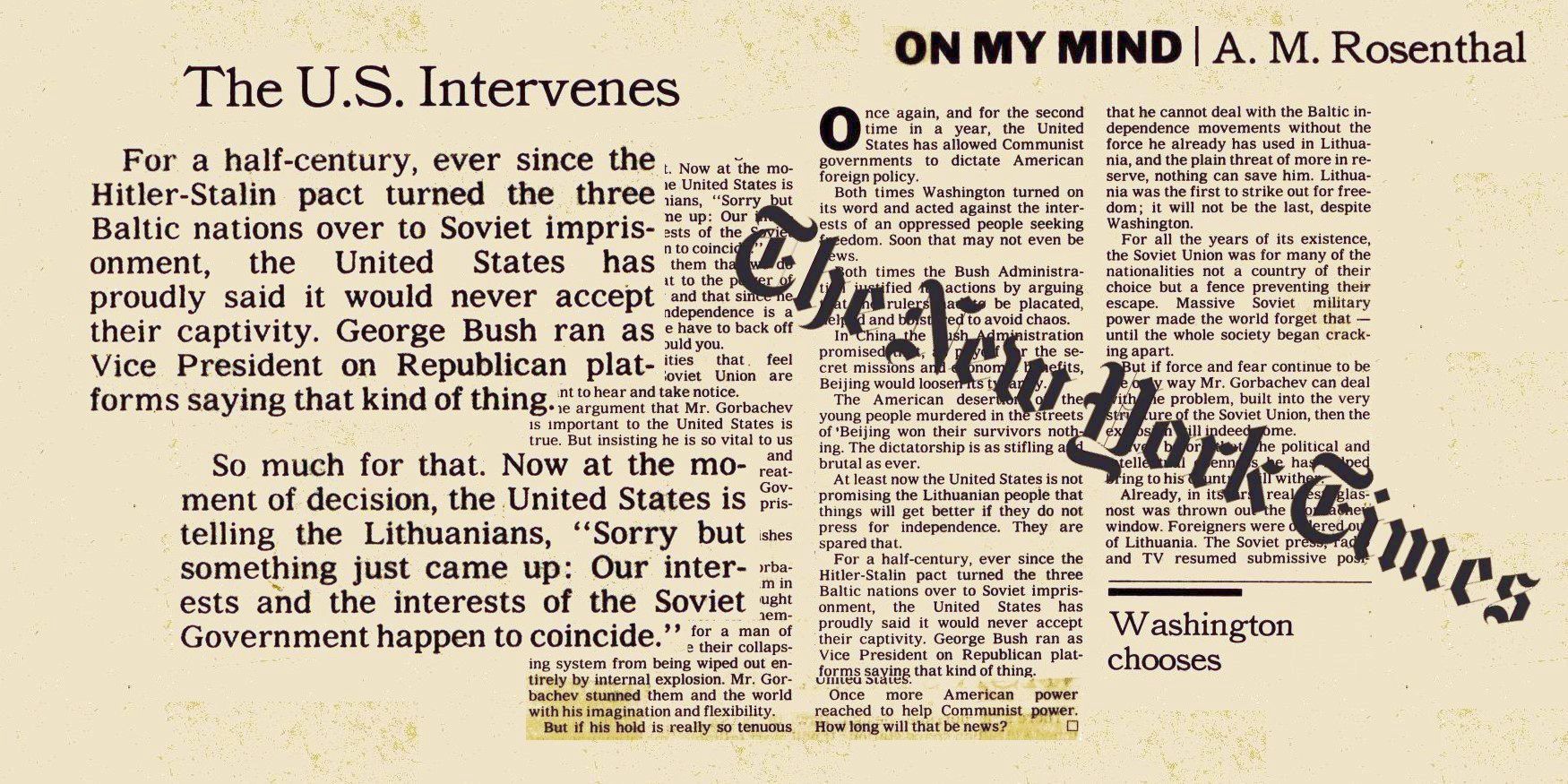
March 29, 1990
A.M. Rosenthal. “The U.S. intervenes”
For a half-century, ever since the Hitler-Stalin pact turned the three Baltic nations over to Soviet imprisonment, the United States has proudly said it would never accept their captivity. George Bush ran as Vice President on Republican platforms saying that kind of thing.
So much for that. Now at the moment of decision, the United States is telling the Lithuanians, “Sorry but something just came up: Our interests and the interests of the Soviet Government happen to coincide.”
Other articles about Lithuania by A.M. Rosenthal published in the NYT column “On My Mind” in 1990:
“How to desert a friend,” April 15, 1990
“Warmth and ice,” July 7, 1990
“Hijack in Washington,” November 16, 1990
-
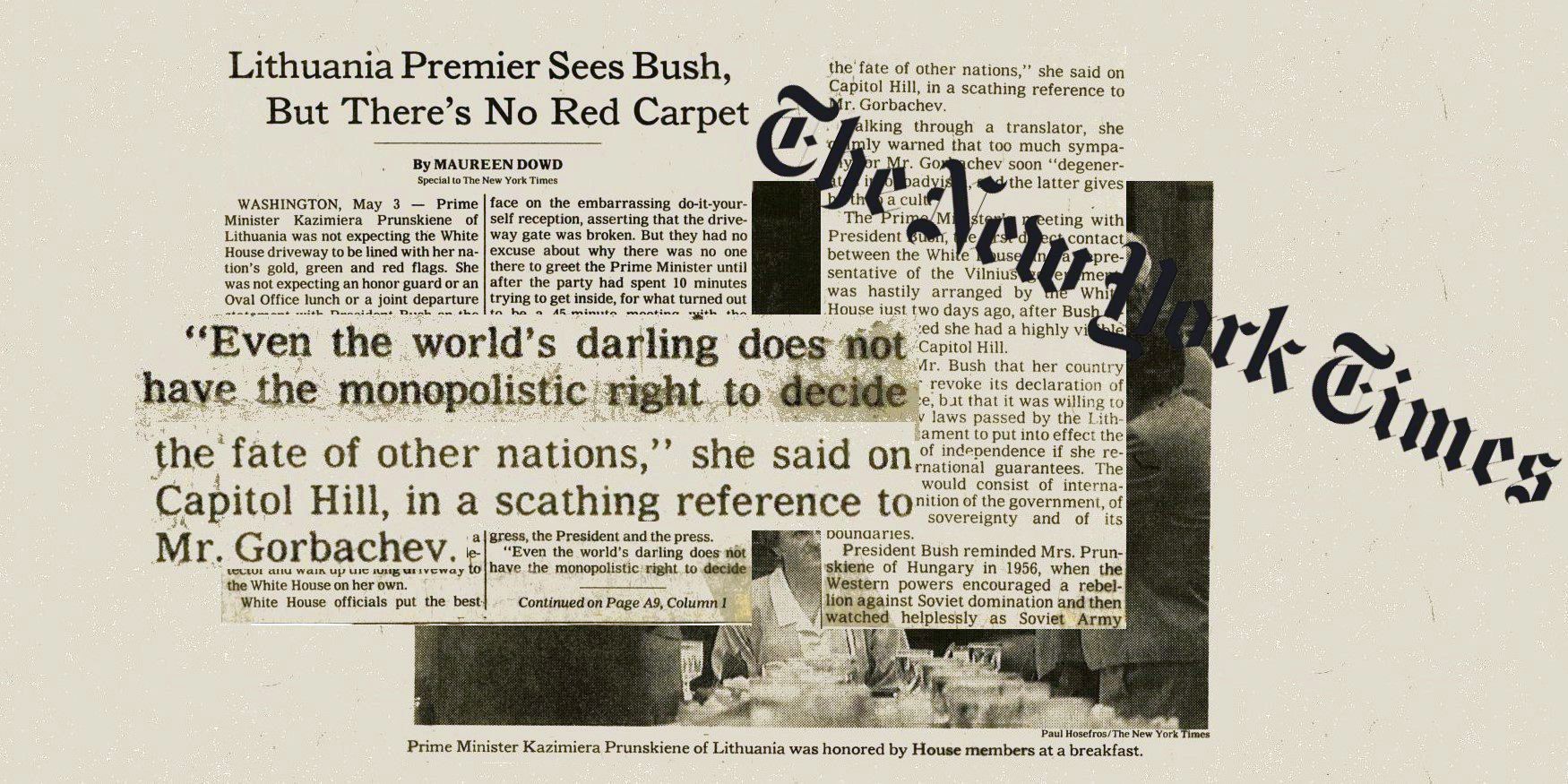
May 4, 1990
Maureen Dowd. “Lithuania Premier sees Bush, but there’s no red carpet”
“Even the world's darling does not have the monopolistic right to decide the fate of other nations,” she said on Capitol Hill, in a scathing reference to Mr. Gorbachev.
-
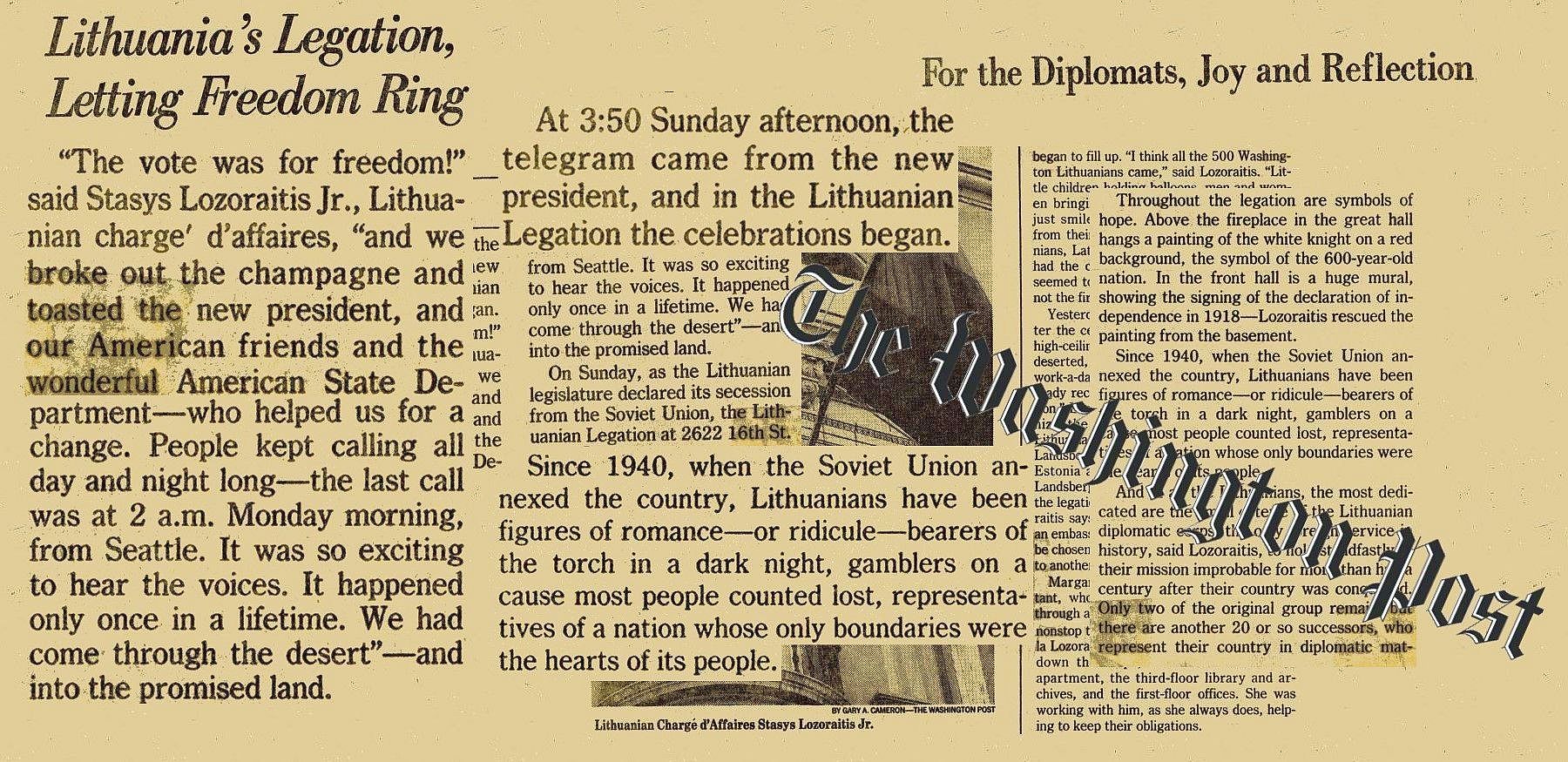
March 13, 1990
Sarah Booth Conroy. “Lithuania’s legation, letting freedom ring: For the diplomats, joy and reflection”
At 3:50 Sunday afternoon, the telegram came from the new president, and in the Lithuanian Legation celebration began.
“The vote was for freedom!” said Stasys Lozoraitis Jr., Lithuanian chargé d'affaires, “and we broke out champagne and toasted the new president, and our American friends and the wonderful American State Department – who helped us for a change. People kept calling all day and night long – the last call was at 2 a.m., Monday moring, from Seattle. It was so exciting to hear the voices. It happened only once in a lifetime. We had come through the desert” – and into the promised land.
Since 1940, when the Soviet Union annexed the country, Lithuanians have been figures of romance – or ridicule – bearers of the torch in a dark night, gamblers on a cause most people counted lost, representatives of a nation whose only boundaries were the hearts of its people.
-
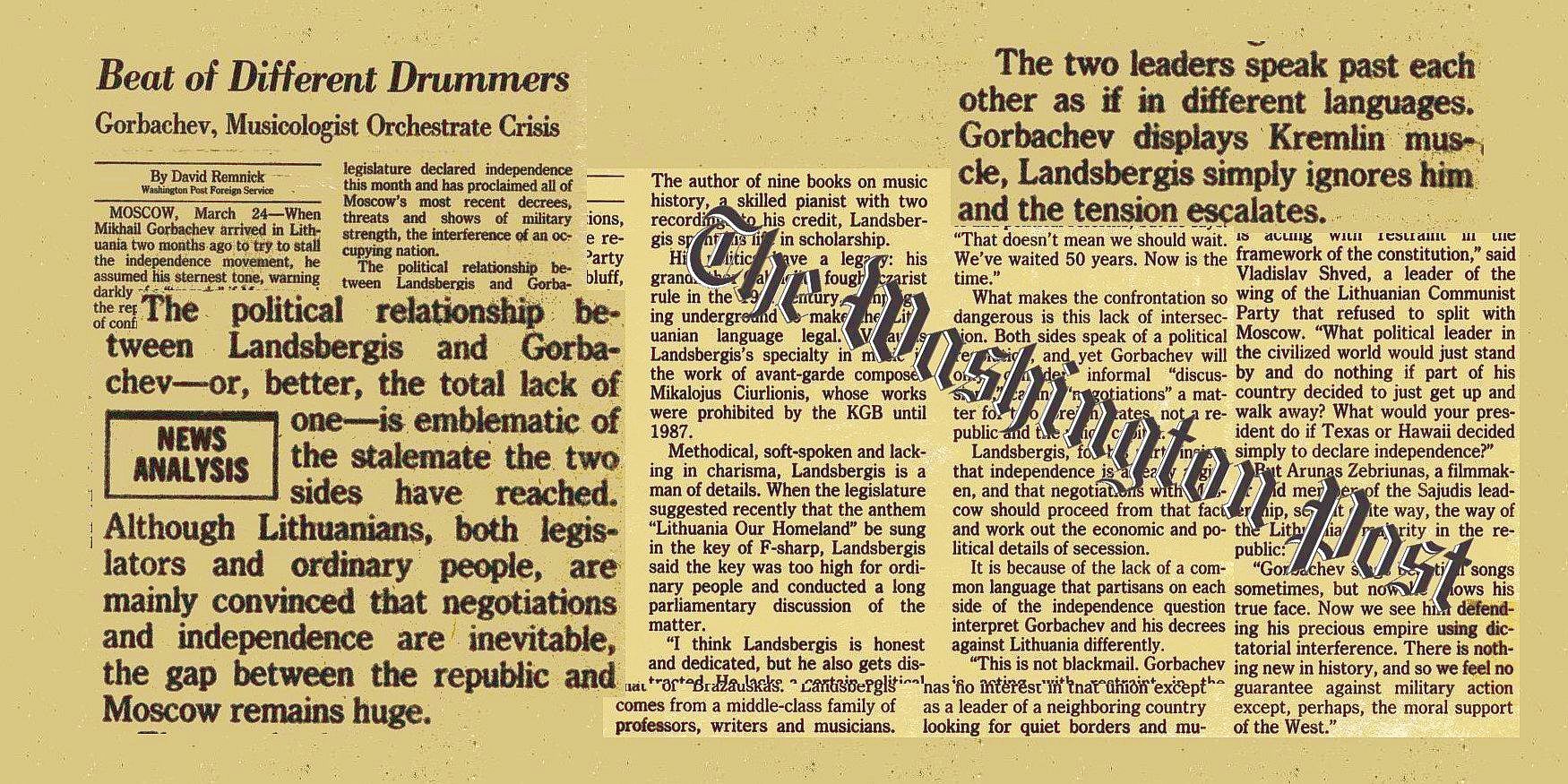
March 25, 1990
David Remnick. “Beat of different drummers: Gorbachev, musicologist orchestrate crisis”
The political relationship between Landsbergis and Gorbachev – or, better, the total lack of one – is emblematic of the stalemate the two sides have reached. Although Lithuanians, both legislators and ordinary people, are mainly convinced that negotiations and independence are inevitable, the gap between the republic and Moscow remains huge.
The two leaders speak past each other as if in different languages. Gorbachev displays Kremlin muscle, Landsbergis simply ignores him and the tension escalates.
-
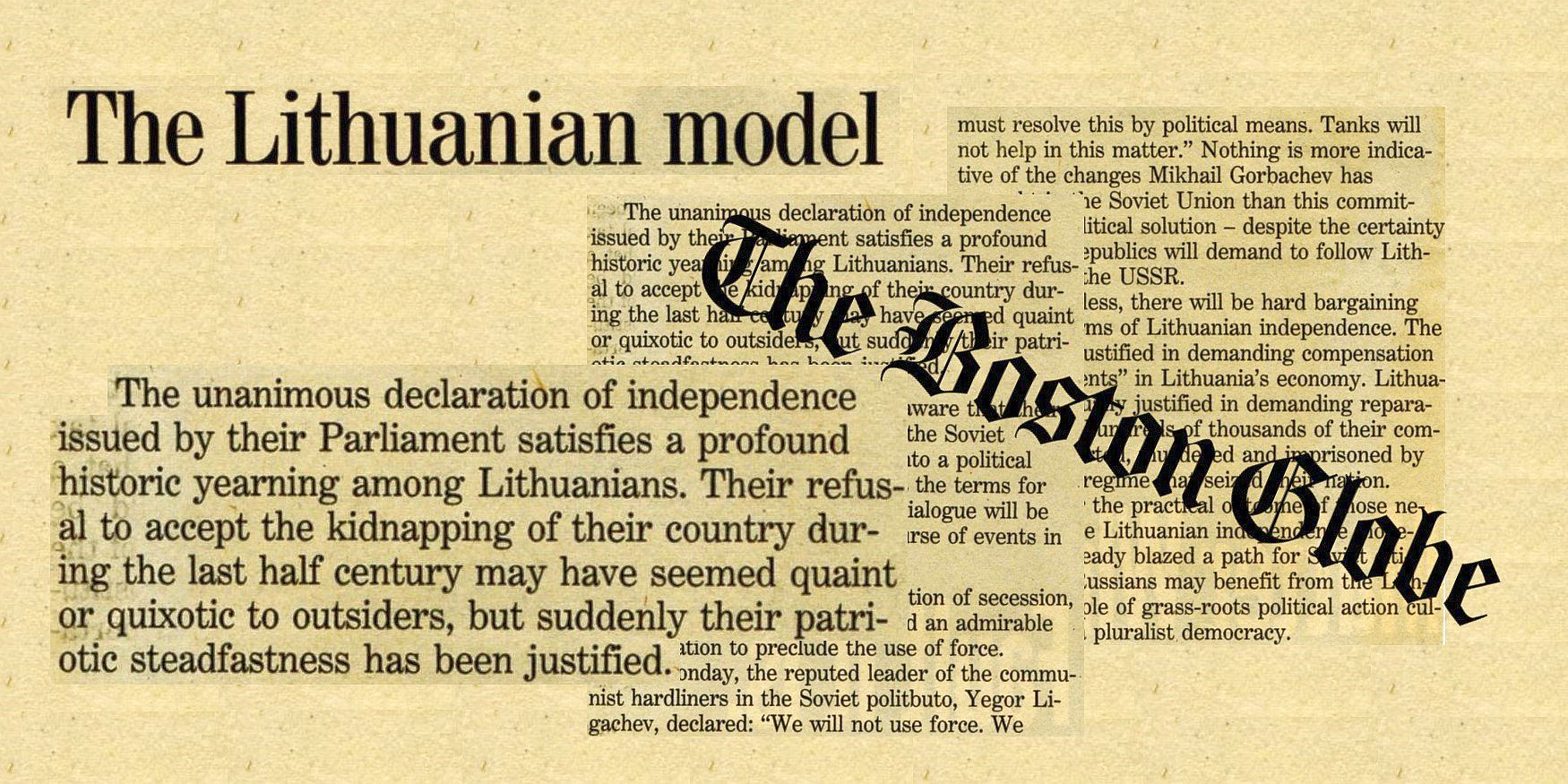
March 14, 1990
“The Lithuanian model”
The unanimous declaration of independence issued by their parliament satisfies a profound historic yearning among Lithuanians. Their refusal to accept the kidnapping of their country during the last half century may have seemed quaint or quixotic to outsiders, but suddenly their patriotic steadfastness has been justified.
-
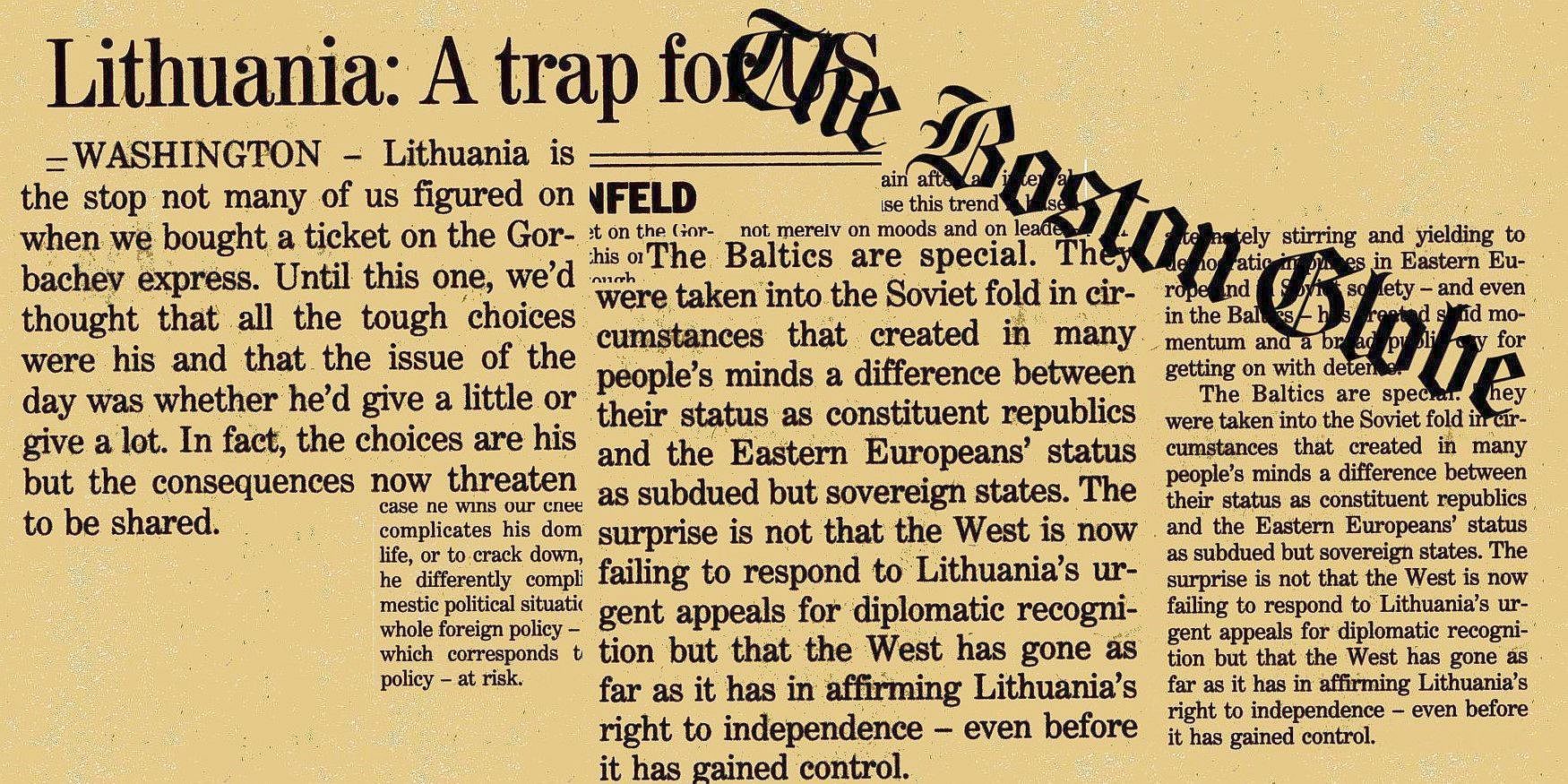
April 3, 1990
Stephen S. Rosenfeld. “Lithuania: A trap for US”
Lithuania is the stop not many of us figured on when we bought a ticket on the Gorbachev express. Until this one, we’d thought that all the tough choices were his and that the issue of the day was whether he’d given a little or give a lot. In fact, the choices are his but the consequences now threaten to be shared.
The Baltics are special. They were taken into the Soviet fold in circumstances that created in many people’s minds a difference between their status as constituent republics and the Eastern European’s status as subdued but sovereign states. The surprise is not that the West is now failing to respond to Lithuania’s urgent appeals for diplomatic recognition but that the West was gone as far as it has in affirming Lithuania’s right to independence – even before it has gained control.
-
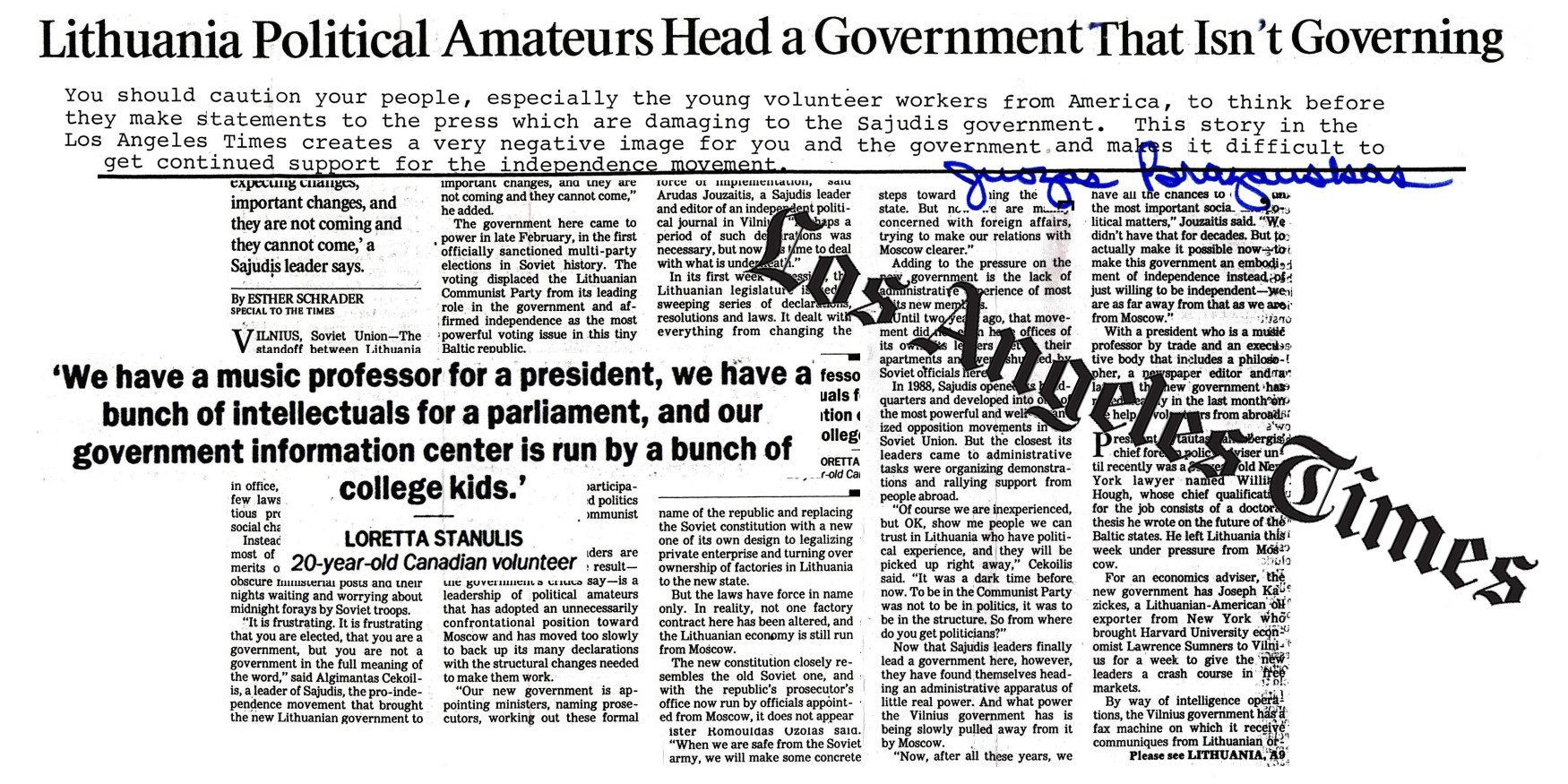
April 6, 1990
Esther Schrader. “Lithuania political amateurs head a government that isn’t governing”
“We have a music professor for a president, we have a bunch of intellectuals for a parliament, and our government information center is run by a bunch of college kids.” Loretta Stanulis, 20-year-old Canadian volunteer.
-
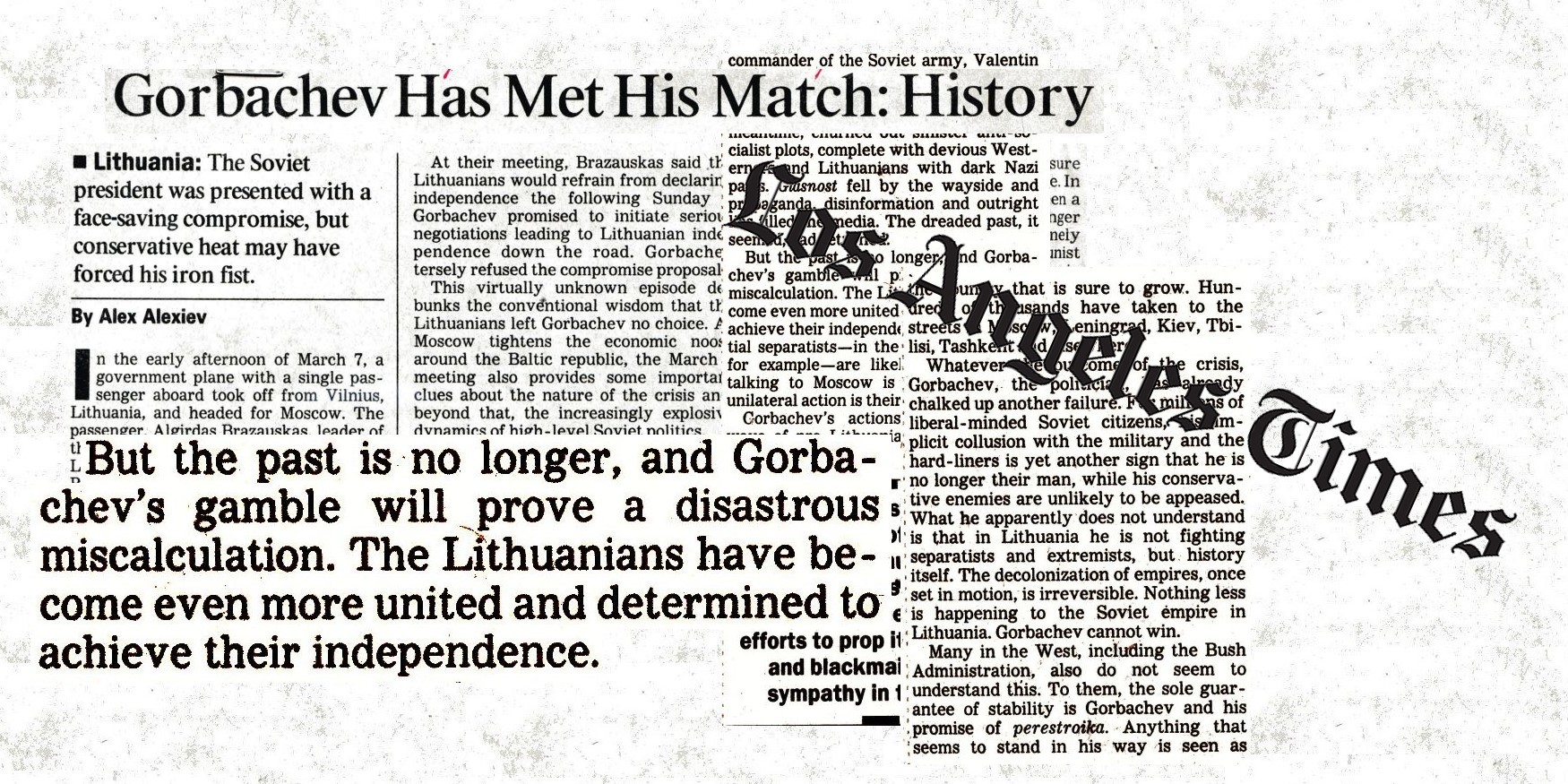
April 22, 1990
Alex Alexiev. “Gorbachev has met his match: history”
But the past is no longer, and Gorbachev's gamble will prove a disastrous miscalculation. The Lithuanians have become even more united and determined to achieve their independence.
-
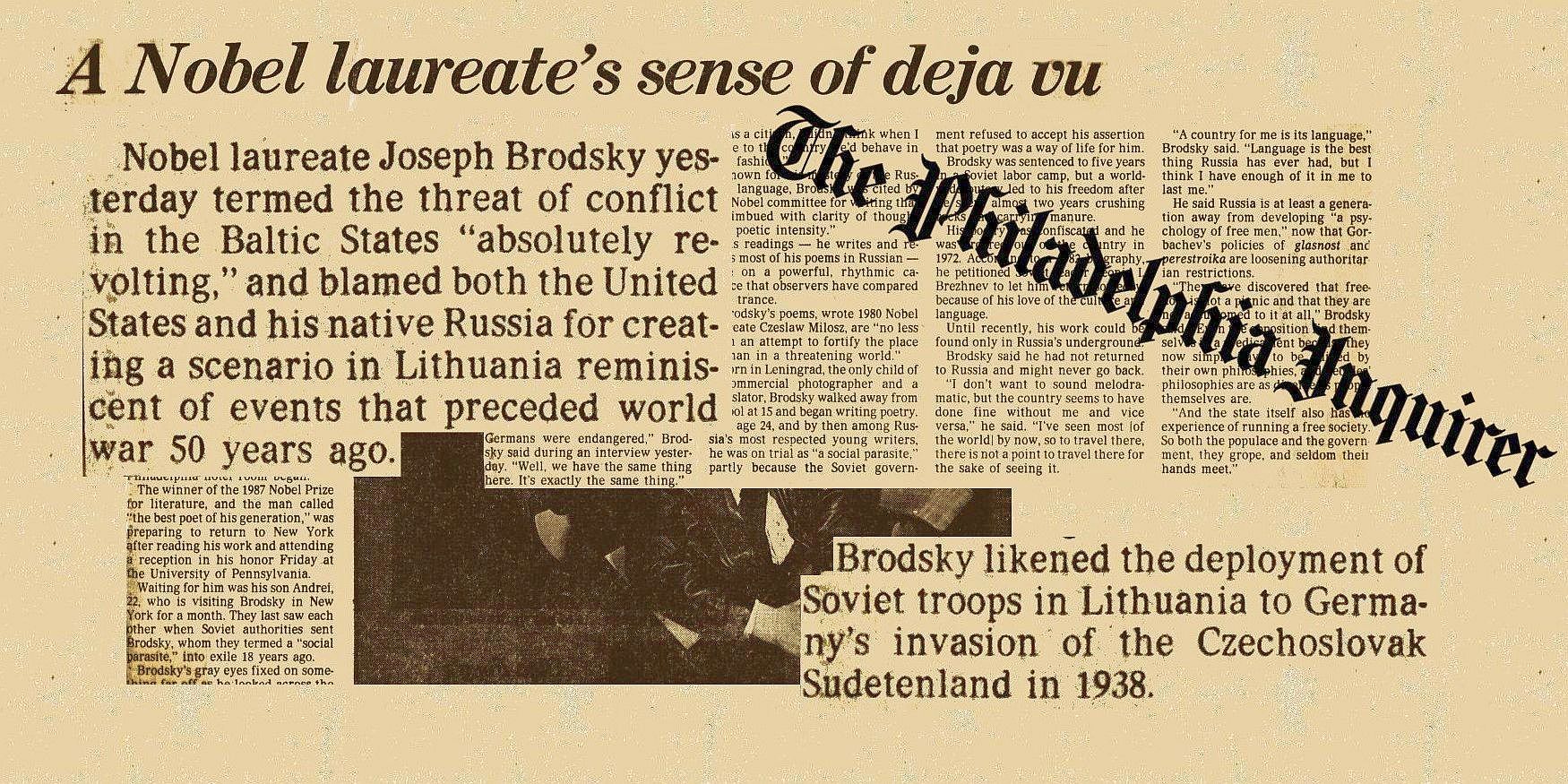
April 1, 1990
Jerry W. Bird. “Nobel laureate’s sense of deja vu”
Nobel laureate Joseph Brodsky yesterday termed the threat of conflict in the Baltic states “absolutely revolting,” and blamed both the United States and his native Russia for creating a scenario in Lithuania reminiscent of events that preceded world war 50 years ago.
Brodsky likened the deployment of Soviet troops in Lithuania to Germany’s invasion of the Czechoslovak Sudetenland in 1938.
-
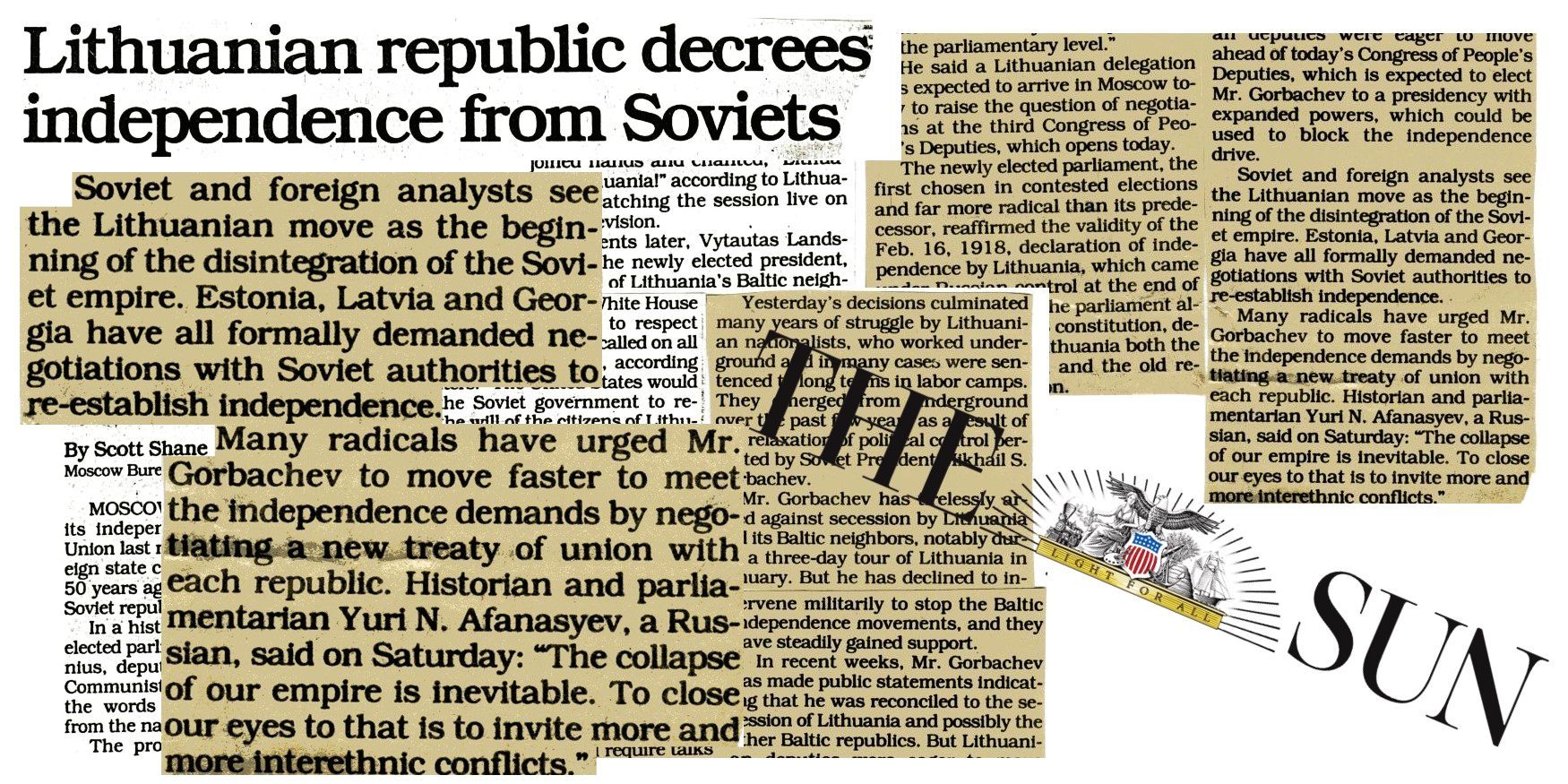
March 12, 1990
Scott Shane. “Lithuanian republic decrees independence from Soviets”
Soviet and foreign analysts see the Lithuanian move as the beginning of the disintegration of the Soviet empire. Estonia, Latvia and Georgia have all formally demanded negotiations with Soviet authorities to re-establish independence drive.
Many radicals have urged Mr. Gorbachev to move faster to meet the independence demands by negotiating a new treaty of union with each republic. Historian and parliamentarian Yuri N. Afanasyev, a Russian, said on Saturday: “the collapse of our empire is inevitable. To close our eyes to that is to invite more and more interethnic conflicts.”
-
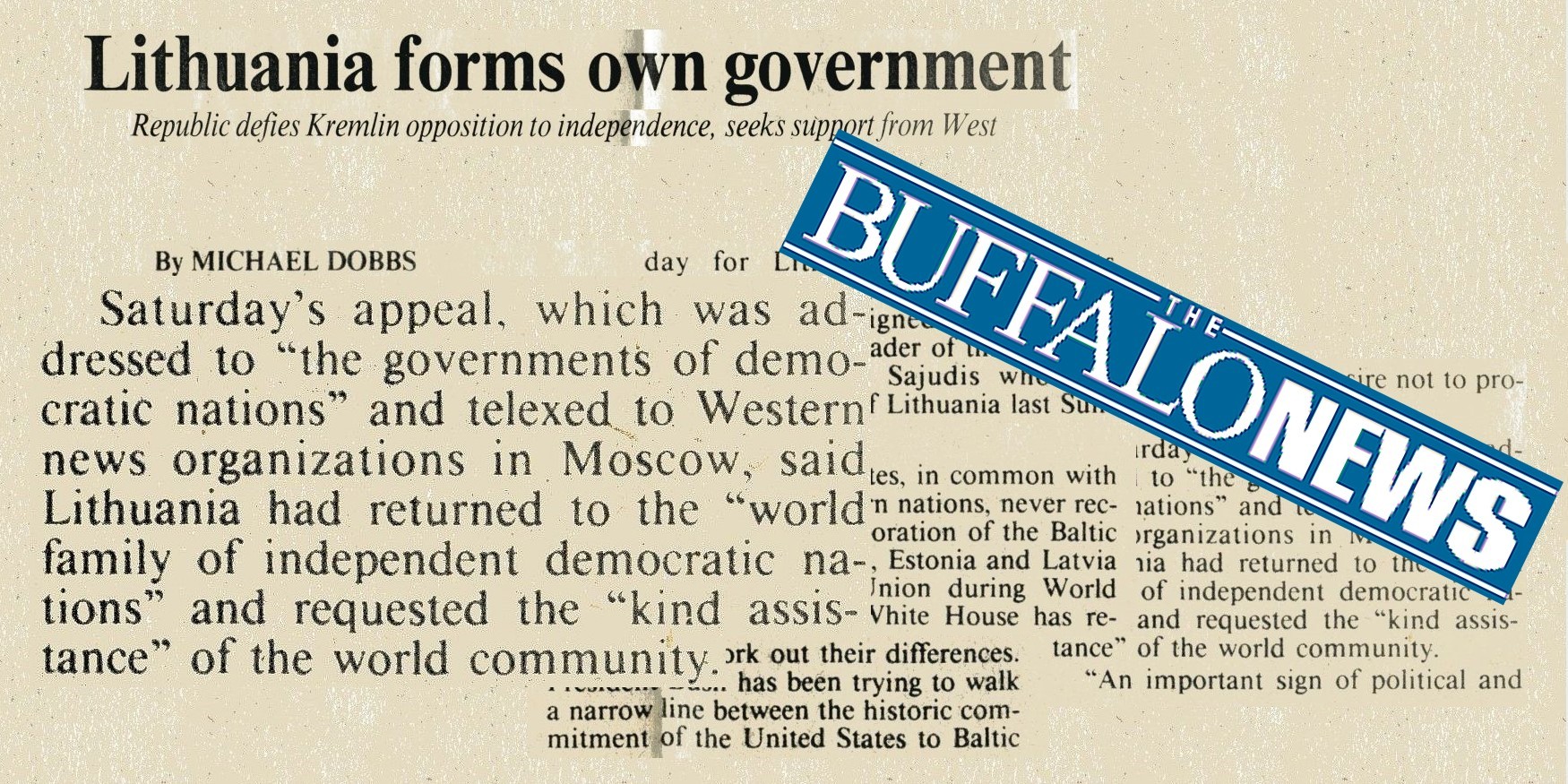
March 18, 1990
Michael Dobbs. “Lithuania forms own government”
Saturday’s appeal which was addressed to “the government of democratic nations” and telexed to Western news organizations in Moscow said Lithuania had returned to the “world family of independent democratic nations” and requested the “kind assistance” of the world community.
-
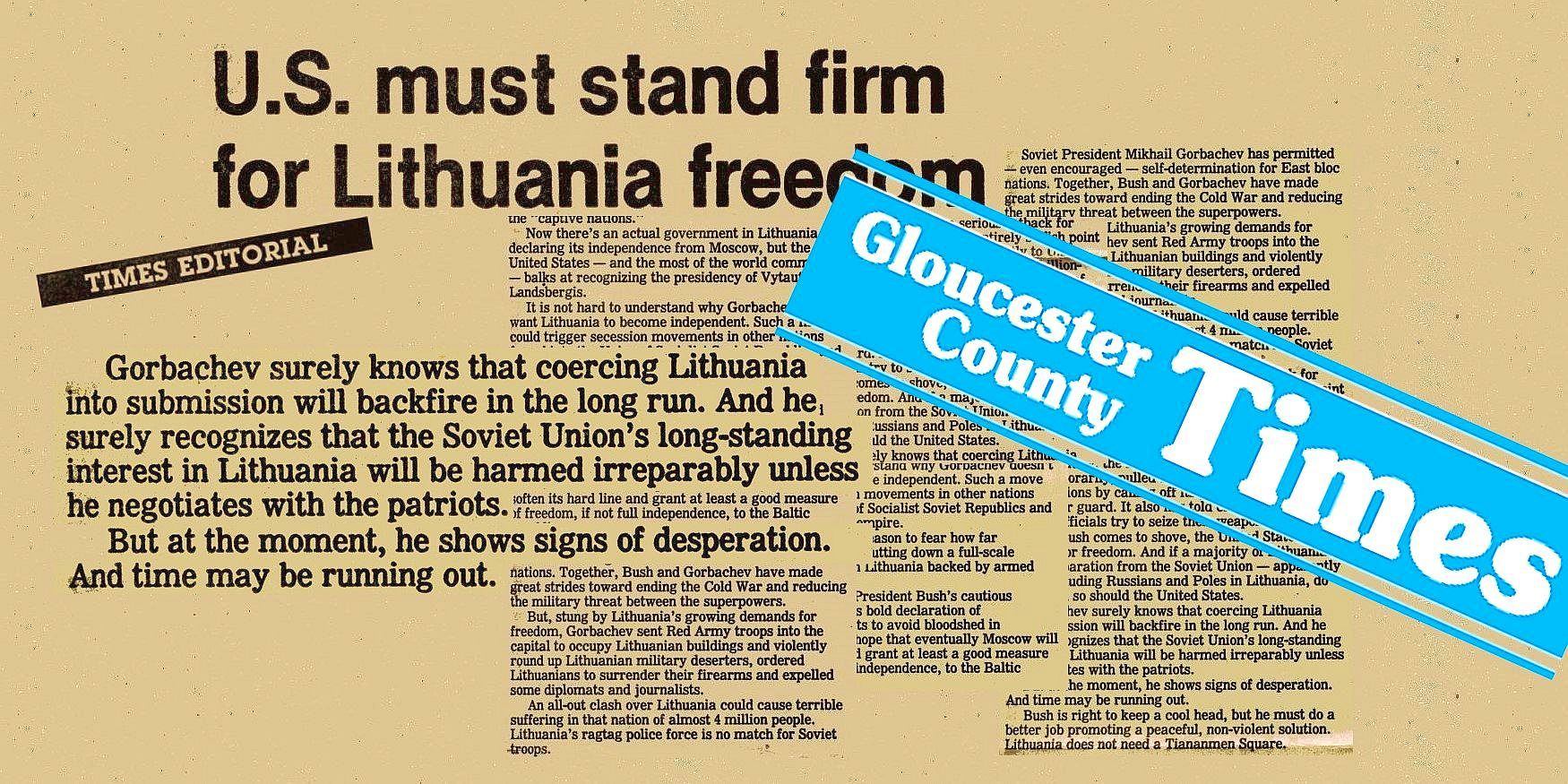
March 30, 1990
“U.S. must stand firm for Lithuania freedom”
Gorbachev surely knows that coercing Lithuania into submission will backfire in the long run. And he surely recognizes that the Soviet Union’s long-standing interest in Lithuania will be harmed irreparably unless he negotiates with the patriots.
But at the moment, he shows signs of desperation. And time may be running out.
-
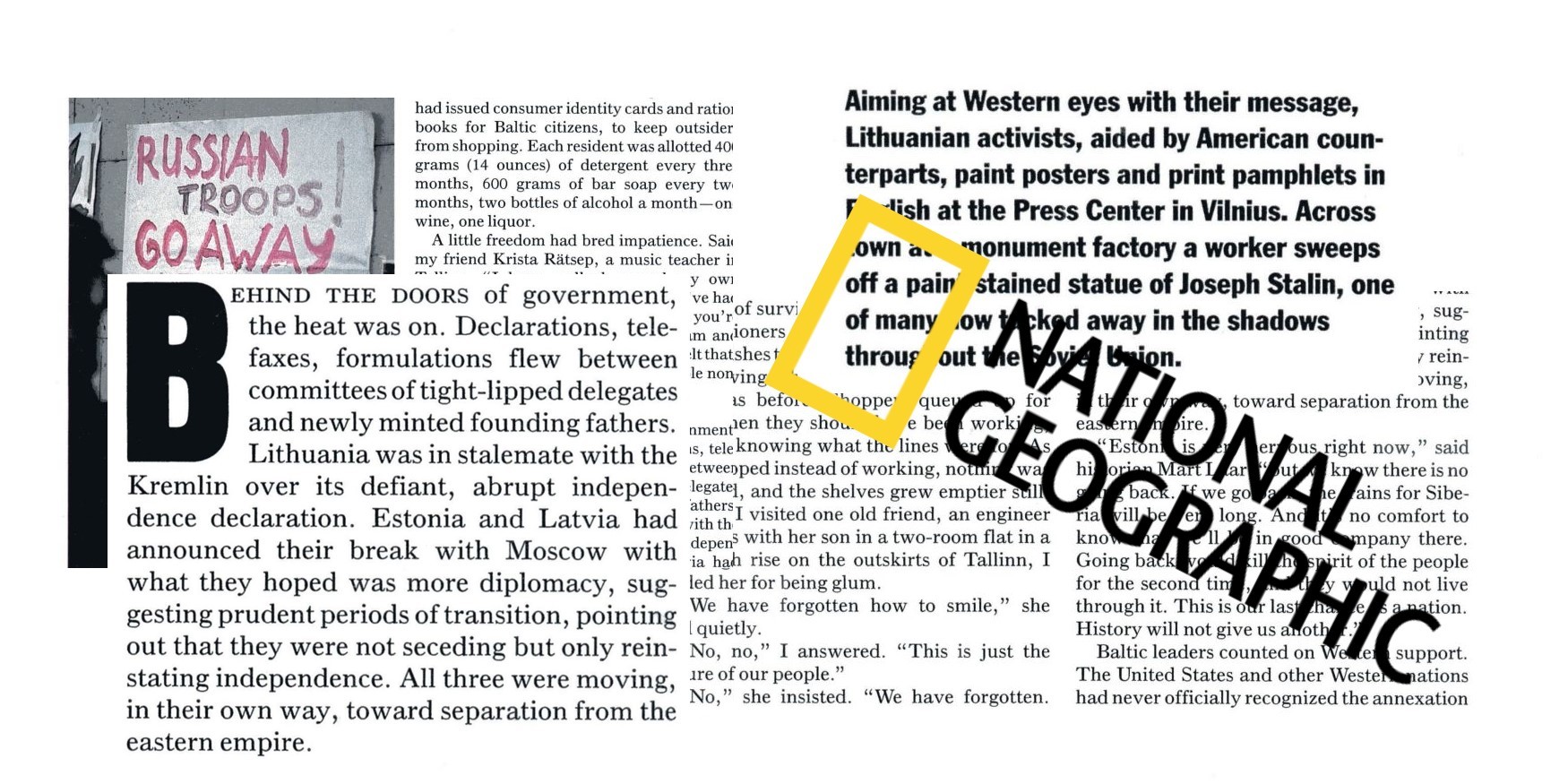
November, 1990
Priit J. Vesilind. “The Baltic nations: Estonia, Latvia, and Lithuania struggle toward independence”
Behind the doors of government, the heat was on. Declarations, telefaxes, formulations flew between committess of tight-lipped delegates and newly minted founding fathers. Lithuania was in stalemate with the Kremlin over its defiant, abrupt independence declaration. Estonia and Latvia had announced their break with Moscow with what they hoped was more diplomacy, suggesting prudent periods of transition, pointing out that they were not seceding but only reinstating independence. Al three were moving, in their own way, toward separation from the eastern empire.
